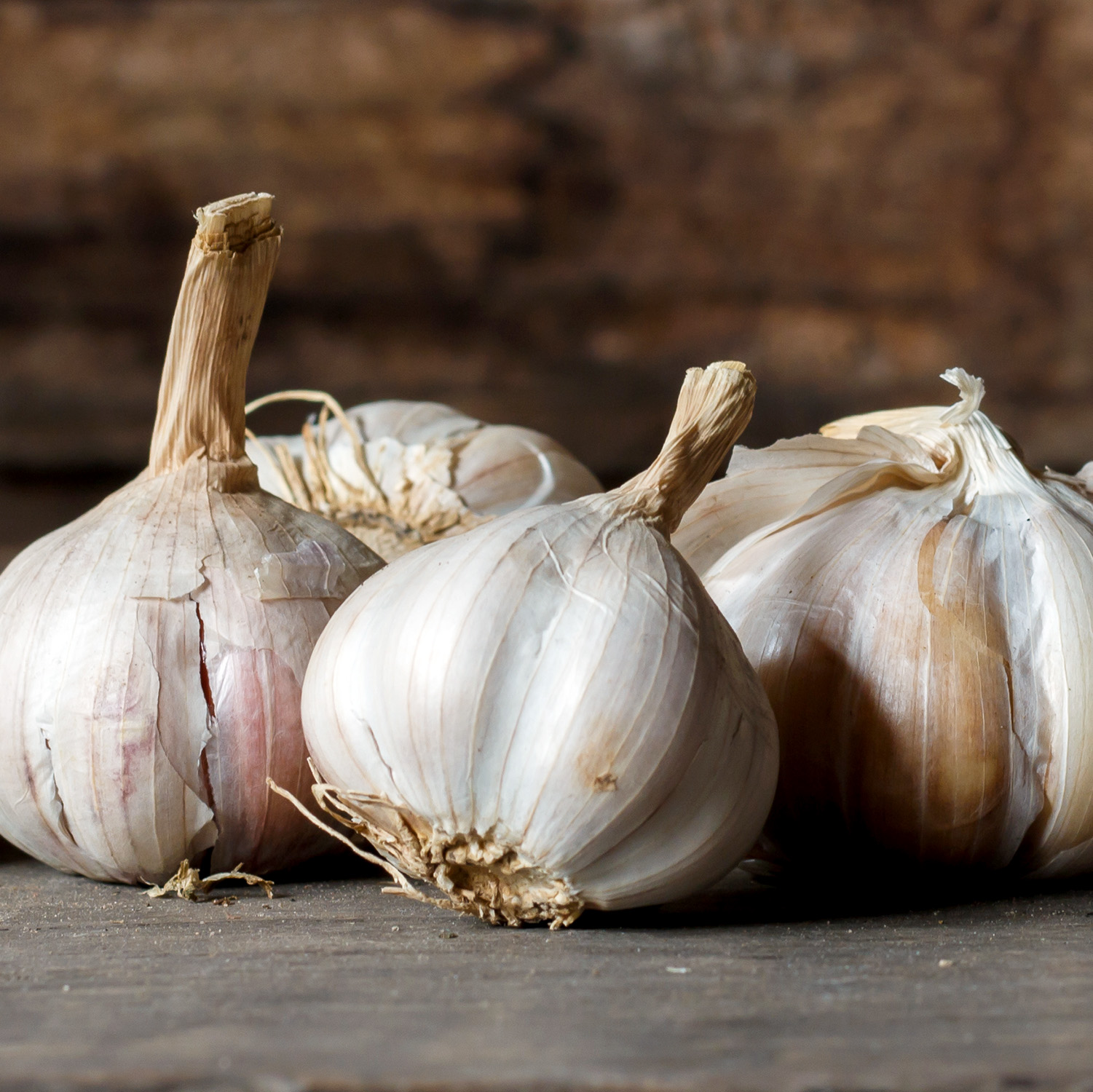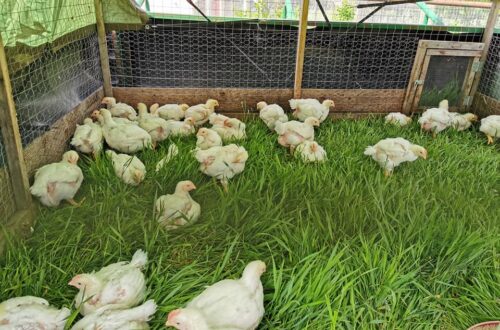Garlic and Chickens
MYTHBUSTING POST! Who is excited? Today, I take on GARLIC.

We all know that members of the allium family (onions, garlic, leeks, chives, scallions, etc.) are toxic to most animals. That includes chickens.
However, the use of garlic is persistent among chicken keepers, perpetuated by popular “chicken bloggers” who unfortunately, are not qualified to be making veterinary recommendations regarding feeding chickens garlic or anything else, really.
In today’s mythbusting, we’re going to look at both sides of the garlic debate. Is it good? Is it not good? Are there things it might actually be good for? Keep reading to find out!
**Anecdotal aside** I get a lot of private messages asking for chicken keeping advice. A LOT. I don’t mind. If I was less honest, I would charge money and write a book instead of giving this stuff away for free. Anyway. I get a lot of messages that go like this: “My chickens look awful. I don’t know why. I’ve been feeding ACV and garlic and oregano daily since I got them six months ago, but they’re not laying and they’re all puffed up and they look miserable. What should I do?” And my answer always is this: STOP FEEDING THEM ALL THAT STUFF. Unless you are treating a specific disease or condition, there is no need to be giving them anything out of the ordinary. If chickens have clean water and good feed, access to the outdoors, good ventilation and an insulated coop, that’s all they need for the majority of their lives. I know it feels nice to do something extra for them, but most of the time, it’s not needed, and quite frequently, it actually causes harm. Stop it. If you want to do something special for them, grow them some wheatgrass. They love that stuff and it won’t hurt them.
Okay. The usual false assumptions behind feeding garlic to chickens are …
1.) It works as a dewormer. (Studies have shown that garlic is ineffective against internal parasites. Just buck up, do the fecal egg count samples with your vet, and treat with a proper dewormer that will deal with the species of worm(s) that you have a problem with.) Study: https://www.sciencedirect.com/science/article/abs/pii/S0304401708006043
2.) It repels external parasites. (No, it doesn’t. At least, not well enough to be worth trying. And I am sorry, it doesn’t work against vampires either. When it comes to external parasites, the only acceptable level of parasites is ZERO, so a small reduction in the number of mites is simply unacceptable.) Study link: https://www.sciencedirect.com/science/article/pii/S0032579119410821
3.) It “boosts” the immune system. (No, it doesn’t. Even if you could “boost” the immune system, you wouldn’t want to. It would cause symptoms of autoimmune disorders like lupus or rheumatoid arthritis. Leave the immune system alone. It is fine on its own. It doesn’t want your help.) https://www.urmc.rochester.edu/encyclopedia/content.aspx?contenttypeid=19&contentid=Garlic
Study: Selected Herbal Hazards https://www.sciencedirect.com/science/article/abs/pii/S0195561601000092
Things that garlic *might* be useful for:
1.) As an anti-fungal. Not usually a concern with chickens, but possibly useful in cases of vent gleek. Study link: https://www.sciencedirect.com/science/article/pii/S0032579119420671
2.) Secondary garlic metabolites *might* be useful against coccidiosis. THIS DOES NOT MEAN FRESH GARLIC IS USEFUL FOR THIS. This study used a product called Garlicon40w, a product containing 40 % of a compound madeof 67 % of propyl thiosulphinate oxide (PTSO) and 33 % of propyl thiosulphinate (PTS). Study link: https://www.researchgate.net/publication/227708112_Improved_resistance_to_Eimeria_acervulina_infection_in_chickens_due_to_dietary_supplementation_with_garlic_metabolites?fbclid=IwAR3YWFuItdU4waiOTW331AUcOaVqSGiDc5dmVphrGBRhNHk6Uw3t6b-LPVA
However: even “chicken herbalists” such as Susan Burek recommend that you not feed garlic to chickens unless you are treating a specific, known condition. It shouldn’t be given regularly, save it for when you’re treating something that it might be effective for. Otherwise, you’re just constantly stimulating their immune systems with low doses of poison and that’s going to come back to bite you in the butt later on. Link to Susan’s recommendations: https://the-chicken-chick.com/raising-chickens-naturally-garlic-with/
Now, here’s the thing that is a concern with most “natural” remedies: there’s no standardized dosing, because the strength of the garlic is going to vary between varieties, regions, and farms. Because of this, you don’t know exactly how much garlic it’s going to take before you cross that threshold from “medicine” to “toxin” in your flock. So, if you do choose to feed garlic, proceed with extreme caution.

